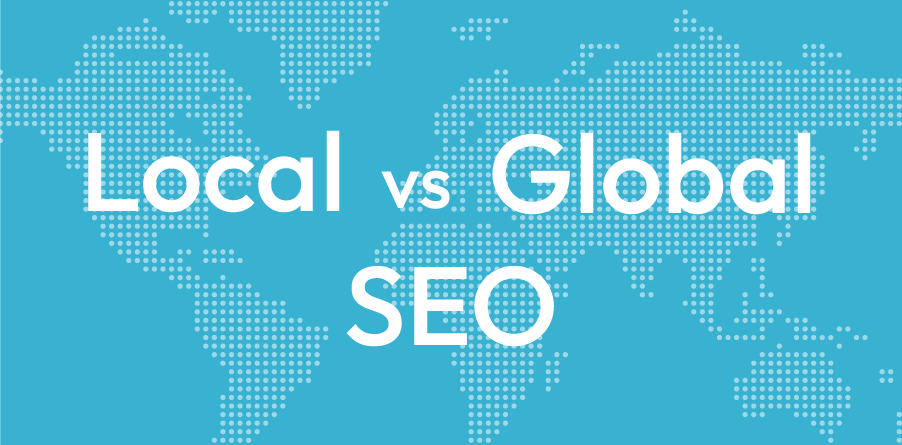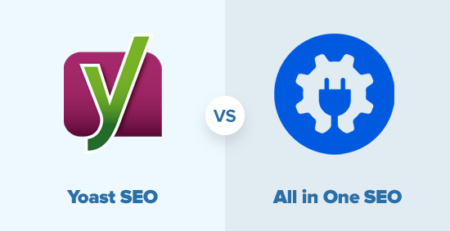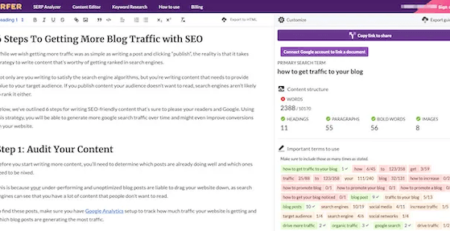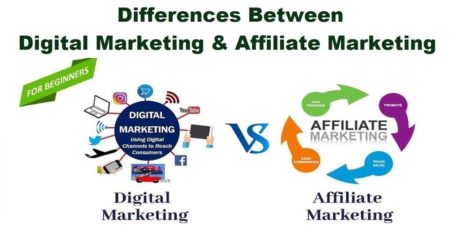Local Seo Vs Global Seo: What You Need To Know Before Buying?
Are you wondering about the differences between local SEO and global SEO? Well, you’ve come to the right place! In this article, we’ll dive into the world of search engine optimization and explore how local SEO and global SEO differ from each other.
First off, let’s start by understanding what SEO is all about. SEO stands for search engine optimization, and it’s the process of optimizing a website to improve its visibility and ranking on search engine results pages (SERPs). By using various strategies and techniques, businesses can attract more organic traffic to their websites, leading to higher visibility and potential customers.
Now, let’s talk about local SEO. Local SEO focuses on optimizing a website to rank higher in local search results. It’s all about targeting a specific area or location, such as a city or neighborhood. If you own a local business like a restaurant or a plumbing service, local SEO can help you connect with customers in your local area and increase foot traffic to your physical store.
On the other hand, global SEO is geared towards businesses with a broader target audience. It’s all about reaching a global market and attracting visitors from different locations around the world. Global SEO strategies often involve targeting competitive keywords with high search volumes to increase website traffic and expand the customer base on a larger scale.
Now that you have a basic understanding of local SEO and global SEO, it’s time to dive deeper into the specifics. Join us as we explore the unique strategies and challenges that come with optimizing for local and global search engines. Let’s get started!

Key Takeaways: Local SEO vs. Global SEO
- Local SEO focuses on targeting customers in a specific geographic area.
- Global SEO aims to reach a wider audience across different countries and regions.
- Local SEO is beneficial for brick-and-mortar businesses that rely on local customers.
- Global SEO is crucial for e-commerce businesses selling products or services worldwide.
- Local SEO employs strategies like optimizing Google My Business listings and local directories.
Comparing Local SEO vs Global SEO
In today’s digital era, search engine optimization (SEO) plays a crucial role in determining the success of online businesses. While there are various aspects of SEO, two significant strategies are local SEO and global SEO. Both approaches have their own unique benefits and target different audiences. In this article, we will compare local SEO and global SEO to help you understand their features, advantages, and disadvantages.
Overview of Local SEO
Local SEO focuses on optimizing a website to rank higher in local search results. It is highly effective for businesses targeting a specific geographical area. Local SEO strategies include optimizing Google My Business profiles, creating local citations, and targeting local keywords. The primary goal of local SEO is to increase visibility in local search results, especially for location-based queries.
With local SEO, businesses can attract local customers who are actively searching for products or services in their area. It helps small businesses, brick-and-mortar stores, and service-based businesses to gain visibility and increase foot traffic to their physical locations.
Local SEO is essential for businesses that rely on local customers, such as restaurants, hair salons, dental clinics, and retail stores. By focusing on specific geographical areas, businesses can connect with their target audience more effectively.
Overview of Global SEO
On the other hand, global SEO aims to optimize a website to rank well in search engines around the world. Global SEO strategies typically involve targeting broad keywords, creating high-quality content, and building backlinks from international websites. The primary objective of global SEO is to attract a global audience and expand the reach of a business on a global scale.
Global SEO is crucial for businesses that operate globally, offer online services, or sell products internationally. It allows businesses to reach potential customers from different countries and increase their online visibility worldwide.
With global SEO, businesses can tap into new markets, increase brand recognition on a global level, and cater to the needs of an international audience. It requires a more extensive keyword research and content localization to suit the preferences and search behavior of different cultures and languages.
Key Features Compared
Now let’s dive into the key features of local SEO and global SEO to understand their differences and benefits:
Target Audience
Local SEO focuses on targeting a specific local audience within the geographical area of a business. It aims to attract customers who are searching for products or services in that particular location. On the other hand, global SEO targets a broad range of audiences worldwide, without any geographical limitations. It aims to reach potential customers regardless of their location.
Keyword Strategy
In local SEO, businesses identify and optimize for local keywords that include location-based phrases or keywords specific to the local market. The keyword strategy is highly focused on targeting relevant queries related to the business’s location. In global SEO, the keyword strategy involves targeting broader keywords that have a high search volume and global appeal. The goal is to reach a wider audience by optimizing for popular search terms.
Content Localization
In local SEO, businesses can benefit from creating localized content that caters to the preferences and needs of their local audience. This involves using local language, mentioning local landmarks or events, and addressing local customer concerns. Global SEO requires content localization on a larger scale, considering the cultural nuances, language translations, and regional differences of the target countries.
Backlink Strategy
For local SEO, businesses focus on building local citations and acquiring backlinks from local directories and websites within their target area. This helps establish local authority and credibility. In global SEO, the backlink strategy is more diverse, aiming to acquire backlinks from reputable websites worldwide to improve overall domain authority and global visibility.
User Experience
When it comes to the user experience, local SEO focuses on providing information that is relevant to local customers, such as business hours, directions, and contact details. It emphasizes the convenience and accessibility of local businesses. Global SEO focuses on delivering a seamless user experience to a global audience, considering factors like website loading speed, mobile responsiveness, and multilingual support.
Pros and Cons
Local SEO:
Pros:
- Highly targeted audience: Local SEO allows businesses to reach customers who are specifically searching for products or services in their area.
- Increase foot traffic: By appearing in local search results, businesses can attract more customers to their physical locations.
- Less competition: Local SEO is often less competitive compared to global SEO, making it easier to rank higher for relevant local keywords.
Cons:
- Limitation to local market: Local SEO is effective for targeting a specific area, but businesses may miss out on potential customers outside their target location.
- Requires constant updates: Local SEO requires regular updates and maintenance to keep business information accurate and up to date.
- Dependent on local search behavior: The success of local SEO depends on the search behavior of local customers, which may vary from one location to another.
Global SEO:
Pros:
- Reach a broader audience: Global SEO enables businesses to expand their reach and attract potential customers from different countries.
- Tap into new markets: By targeting a global audience, businesses can enter new markets and increase their customer base.
- Brand recognition: Global SEO efforts contribute to building brand recognition and establishing a strong online presence worldwide.
Cons:
- High competition: Global SEO is highly competitive, as businesses worldwide are vying for top rankings in search engine results.
- Complex keyword research: Targeting global keywords requires in-depth research and understanding of different markets and cultures.
- Localization challenges: Adapting content for different languages and cultures can be challenging and time-consuming.
Price Comparison
Local SEO and global SEO can have varying costs depending on the scope and scale of the optimization efforts. Local SEO typically requires less investment compared to global SEO since it focuses on a specific area. However, the prices can vary depending on the competition level and the specific needs of the business. Global SEO often requires a more substantial investment due to the need for extensive keyword research, content localization, and international outreach efforts.
Comparison Table: Local SEO vs Global SEO
| Feature | Local SEO | Global SEO |
|---|---|---|
| Target Audience | Focused on a specific local audience within a geographical area | Targets a broad range of audiences worldwide |
| Keyword Strategy | Optimizes for local and location-based keywords | Targets broader keywords with global appeal |
| Content Localization | Localized content for specific local markets | Extensive content localization for different languages and cultures |
| Backlink Strategy | Focuses on local citations and backlinks from local directories | Aims for diverse backlinks from reputable websites worldwide |
| User Experience | Provides relevant information for local customers | Delivers a seamless user experience for a global audience |
Final Decision: Which is better?
Choosing between local SEO and global SEO depends on the specific goals and target audience of a business. Let’s weigh the factors:
- Target Audience: If a business primarily caters to a local market and relies on foot traffic or local customers, local SEO is the better choice. It allows businesses to connect with their local audience more effectively and increase visibility in local search results.
- Expansion and Reach: For businesses with the aim of expanding globally and reaching a broader audience, global SEO is the preferred option. It offers the opportunity to tap into new markets, increase brand recognition worldwide, and attract diverse customers from different countries.
- Competition: Consider the competition level in your industry and target market. If the competition is high in your local area, global SEO might be a good alternative to explore. Similarly, if your business is in a niche industry and has already established a strong local presence, global SEO can help you expand further.
In conclusion, there is no definitive answer to which SEO strategy is better – local SEO or global SEO. The choice depends on the specific goals and requirements of a business. It’s crucial to understand the target audience, competition level, and expansion plans before deciding which approach to implement. Take into account the resources, budget, and expertise available to ensure the chosen SEO strategy aligns with the overall business objectives.
Frequently Asked Questions
When it comes to optimizing your website for search engines, you may have heard about the terms “Local SEO” and “Global SEO”. Here are some common questions and answers to help you understand the differences between the two and make informed decisions for your business.
1. How does Local SEO differ from Global SEO?
Local SEO focuses on optimizing your website to rank higher in location-based search results, targeting customers in a specific geographical area. This strategy is effective for businesses with a physical presence or those targeting a local audience. Global SEO, on the other hand, aims to improve your website’s visibility on search engines internationally. It targets a broader audience and is suitable for businesses operating in multiple countries or catering to a global customer base.
Local SEO focuses on local search factors such as creating and optimizing Google My Business listings, local directories, and geographically relevant keywords. Global SEO, on the other hand, prioritizes factors like international keyword research, hreflang tags, and optimizing website content for different languages and regions.
2. Which businesses should prioritize Local SEO over Global SEO?
Local SEO is particularly beneficial for businesses that rely on local customers or those with physical storefronts. If you have a restaurant, retail store, or provide services within a specific area, local SEO can help you gain visibility and draw in local customers. It allows you to target relevant keywords specific to your location, making it easier for potential customers to find you when searching for local products or services.
For example, a bakery in New York City would benefit from local SEO strategies as it allows them to appear in search results for queries like “best bakery in NYC”. By focusing on local optimization, they can outrank larger global competitors and attract customers within their immediate vicinity.
3. Are there any specific techniques that are unique to Local SEO?
Yes, there are specific techniques that are unique to Local SEO. Some of them include:
– Optimizing Google My Business listing: Claiming and optimizing your Google My Business listing helps improve your visibility in local search results. Provide accurate and up-to-date information, including your business address, phone number, and operating hours.
– Local directory listings: Submitting your business information to relevant local directories improves your chances of appearing in local search results. Examples include Yelp, Yellow Pages, and local Chamber of Commerce directories.
– Localized keywords: Using location-specific keywords throughout your website’s content and meta tags helps search engines understand your relevance for local searches.
By implementing these techniques, you can improve your chances of ranking higher in local search results and drive targeted traffic to your website.
4. Is Global SEO necessary for businesses targeting international markets?
If your business operates on an international scale or targets customers from different countries, then Global SEO is crucial. Optimizing your website for global search engines ensures that your content is accessible and appealing to users worldwide. It involves strategies such as:
– International keyword research: Identifying relevant keywords for each target country or language is essential for optimizing your content to match the searcher’s intent.
– Hreflang tags: Implementing hreflang tags on your website signals to search engines which language and region-specific versions of your content are available, ensuring users see the correct version based on their location or language preferences.
– Localization of content: Adapting your content to suit the cultural nuances and preferences of different regions can make a significant impact on your global SEO efforts.
By investing in Global SEO, you can expand your reach, attract international customers, and increase your brand’s visibility on a global scale.
5. Can businesses benefit from a combination of Local SEO and Global SEO strategies?
Absolutely! Businesses operating in multiple locations or those targeting both local and international markets can benefit from a combination of Local SEO and Global SEO strategies. By optimizing your website for both local and global audiences, you can maximize your online presence and attract customers from various sources.
For example, a hotel chain operating in different cities can focus on Local SEO to target customers in each specific location while implementing Global SEO techniques to attract international tourists. This two-pronged approach allows them to effectively reach their target audience at both local and global levels and maximize their visibility across different search engines.
Local SEO vs SEO: What’s the difference?
Summary
Local SEO and global SEO are two different approaches to improving your website’s visibility on search engines. Local SEO focuses on targeting customers in a specific geographical area, while global SEO aims to reach a wider audience across different regions.
In this article, we explored the main differences between local SEO and global SEO. We learned that local SEO is beneficial for businesses with a physical presence, such as local stores or restaurants. By optimizing your website for local keywords and directories, you can increase your chances of appearing in local search results, making it easier for potential customers to find you.
On the other hand, global SEO is essential for businesses that offer products or services worldwide. By using global keywords, creating high-quality content, and building authoritative backlinks, you can improve your website’s visibility on a global scale. This allows you to reach a larger audience and attract customers from different countries.
In conclusion, whether you should focus on local SEO or global SEO depends on your business goals and target audience. If you have a local presence, prioritize local SEO to attract nearby customers. If your business operates internationally, global SEO is crucial for expanding your reach. Regardless of your approach, remember to provide valuable content, optimize your website, and establish a strong online presence to enhance your chances of success.










Leave a Reply